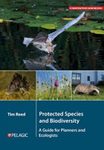![The Snow Leopard and the Goat The Snow Leopard and the Goat]()
Click to have a closer look
About this book
Customer reviews
Biography
Related titles
About this book
Following the downgrading of the snow leopard's status from "endangered" to "vulnerable" by the International Union for Conservation of Nature in 2017, debate has renewed about the actual number of snow leopards in the wild and the most effective strategies for coexisting with these enigmatic animals. Evidence from Pakistan and other countries in the snow leopard's home range shows that they rely heavily on human society – domestic livestock accounts for as much as 70 percent of their diet. Maintaining that the snow leopard is a "wild" animal, conservation NGOs and state agencies have enacted laws that punish farmers for attacking these predators, while avoiding engaging with efforts to mitigate the harms suffered by farmers whose herds are reduced by snow leopards.
This ethnography examines the uneven distribution of costs and benefits involved in snow leopard conservation and shows that for the conservation of nature to be successful, the vision, interests, and priorities of those most affected by conservation policies – in this case, local farmers – must be addressed. A case history of Project Snow Leopard in the mountains of northern Pakistan, which inspired similar programs in India, Bhutan, Nepal, Mongolia, Afghanistan and Tajikistan, describes how the animal's food habits are studied, how elusive individuals are counted, and how a novel kind of "snow leopard insurance" has protected the species by compensating farmers for livestock losses. The Snow Leopard and the Goat demonstrates that characterizing this conflict as one between humans (farmers) and wildlife (snow leopards) is misleading, as the real conflict is between two human groups – farmers and conservationists – who see the snow leopard differently.
Customer Reviews
Biography
Shafqat Hussain is associate professor of anthropology at Trinity College. He is the author of Remoteness and Modernity: Transformation and Continuity in Northern Pakistan.
By: Shafqat Hussain(Author), K Sivaramakrishnan(Foreword By)
217 pages, 7 b/w illustrations, 2 b/w maps, 5 tables
"Hussain provides context on the animal (the snow leopard) and the area (mountainous Baltistan) in question by examining how both Islam and residual traces of Bon, the area's now extinct pre-Islam religion, influence local attitudes [...] Readers interested in animal conservation will find much to ponder in this thoughtful study."
– Publishers Weekly
"A wonderful book, full of rich insights, telling observations, and a compelling, original argument."
– Dan Brockington, author of Fortress Conservation: The Preservation of the Mkomazi Game Reserve
"A much-needed and important book that takes upon itself a difficult task: critiquing the existing narratives and models of global wildlife conservation from a multidisciplinary perspective."
– Ghazala Shahabuddin, author of Conservation at the Crossroads: Science, Society, and the Future of India's Wildlife
"In this absolutely brilliant and beautifully written ethnography, Shafqat Hussain shows us the political economy and social ecology of the relations between Balti farmers, conservation activists and managers, and snow leopards. His argument, while grounded in Pakistan, speaks to the larger questions about the relationships between nature and culture and the ethics of who gets to govern those relations. As such it constitutes a major contribution to anthropology, conservation ecology, and political ecology."
– Paige West, Claire Tow Professor of Anthropology, Barnard College and Columbia University






































